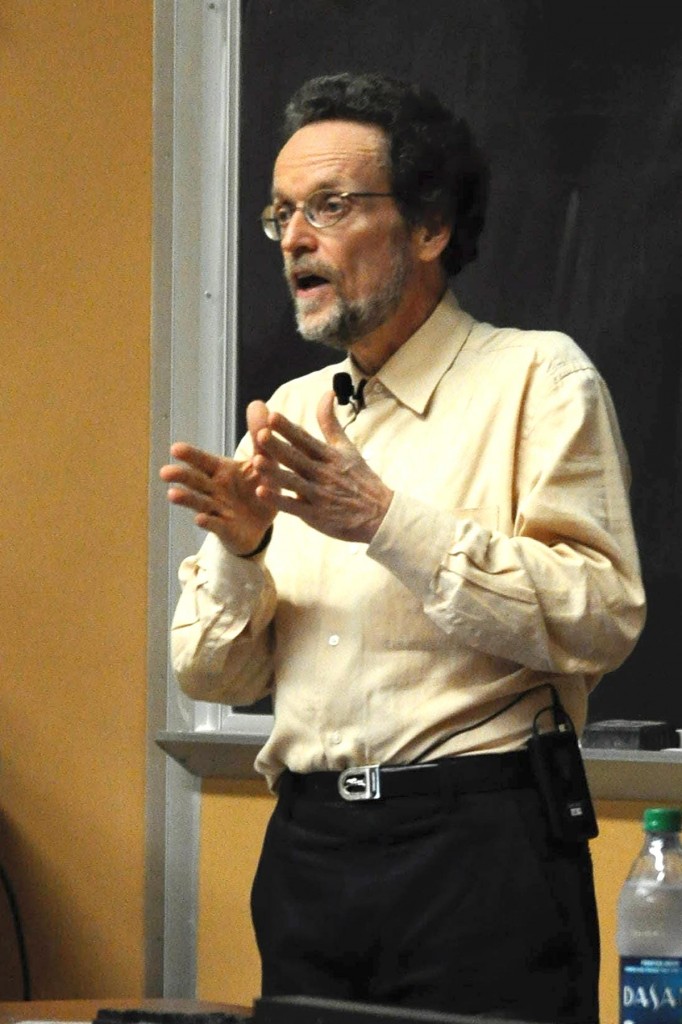
A champion of global justice, world-renowned German philosopher Thomas Pogge, spoke before a packed house Wednesday, as students and professors crowded to hear his proposal to end chronic poverty and his damnation of the Western world for perpetuating it.
Pogge, the Leitner Professor of Philosophy and International Affairs at Yale University, is the author of two major philosophical works: “Realizing Rawls” and “World Poverty and Human Rights.”
“Income is very unequally distributed in the world,” Pogge began his talk. “Why is this happening? Why are so many people so needy, so very poor?”
He argued that severe poverty is a violation of human rights, and the current design of supra-national organizations, such as major corporations and influential lobbyists, is to blame.
“A lot of aid isn’t intended to help the countries that need it, but instead to aid the agents who are capable of reciprocation,” Pogge said. “About one-third of all human lives end in death from a poverty-related cause.”
Pogge condemned powerful CEOs for using their money and resources to contribute to a global economic structure that is morally bankrupt and flawed — just because it is in their best interest.
“The economy is shaped by certain rules, structured by certain rules,” he said. “You can become quite rich and successful if you abide by the rules. You can also become successful by trying to influence the implementation of the rules. It wouldn’t be surprising if rich people had greater influence over the shaping of regulatory rules and if they used that influence to increase their shares.”
To combat the forces that contribute to poverty, Pogge said, is a responsibility shared by everybody. To achieve success, people must shift their focus from vague Utopian aspirations to the specific initiatives working to fix the problems.
“We need to move from detached goals to agreed responsibilities,” he said. “Everybody is supposed to take part in this and cheer for the success of these goals.”
But who, one student asked of Pogge, is already doing their part to make these changes?
Pogge responded by praising Givewell, an organization that evaluates non-government charities, such as Unicef and Doctors Without Borders. Givewell bases its evaluations on data and statistics, while avoiding blanket praise for the charity’s mission statement.
Regionally, he said Latin America is leading the way in the fight against inequality.
“Latin America is making progress against inequality from the highest level,” Pogge said. “Brazil has done some very effective things against inequality from both ends.”
Pogge’s lecture was hosted by the philosophy department and co-sponsored by the Harpur College Dean’s Office, the economics and sociology departments and the philosophy, politics and law program.
“I was really excited that we were able to get such a high-profile speaker to lecture at Binghamton,” said Chelsea Desruisseaux, an undeclared freshman. “It was definitely a treat for everyone who attended.”


